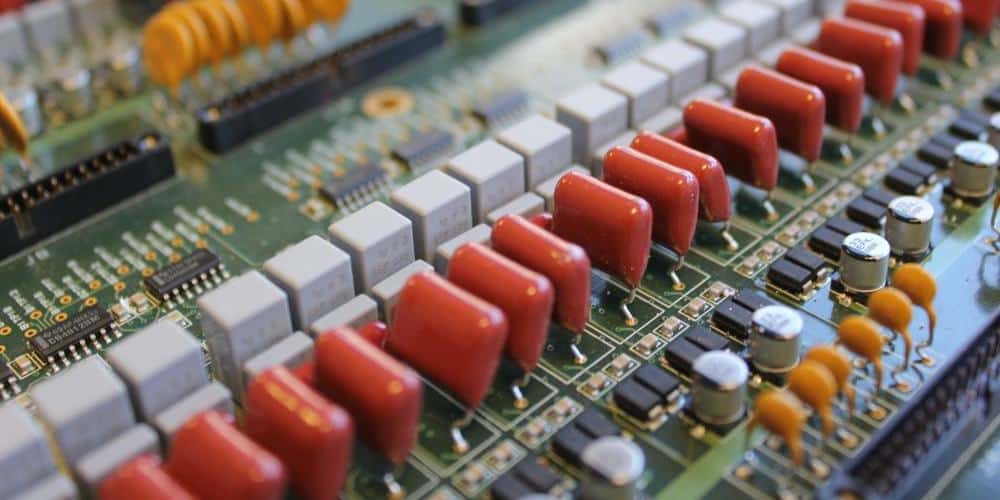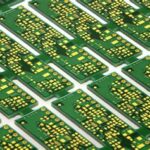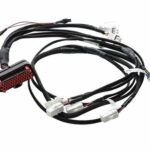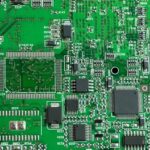Introduction
China has become the world’s leader in electronics manufacturing. Home to countless electronics factories, China produces over 40% of the global supply of consumer electronics and components. With low costs, skilled workers, an efficient supply chain, and strong infrastructure, China established itself as the prime location for electronics production.
This article covers the top 20 electronics factories in China based on factors like scale, revenue, capabilities, reputation and impact. It provides an overview of each factory along with their core manufacturing expertise and major customers. The list includes large-scale EMS providers, major ODM/OEM factories, semiconductor foundries and other significant players.
Top 20 Electronics Factories in China
1. Foxconn

Foxconn Technology Group, also known as Hon Hai Precision Industry Co. Ltd, is the largest electronics manufacturer in the world. Headquartered in Taiwan, Foxconn operates several massive factories in China including plants in Shenzhen, Chengdu, Shanghai, Hangzhou and Wuhan.
With over 1 million employees in China alone, Foxconn is able to manufacture at enormous economies of scale. It works with electronics leaders like Apple, Sony, Microsoft, Amazon, Intel and Cisco. Foxconn produces iPhones, iPads, Kindles, PlayStation 4 consoles, servers, PCs, displays and a wide range of other electronics.
2. Pegatron
Pegatron is another leading Taiwanese EMS company with major manufacturing facilities in China including Shanghai, Nanjing and Kunshan. It has around 200,000 employees focused on contract manufacturing of computing, communications and consumer electronics products.
Pegatron serves major clients such as Apple, Microsoft, Dell, HP, Lenovo, Xiaomi, Sony and many more. Key products include iPhones, laptops, set top boxes, game consoles, networking equipment and IoT devices.
3. Flex Ltd.
Headquartered in Singapore, Flex operates 16 massive electronics factories across China including in Zhuhai, Shanghai, Wuzhong, and Changsha. It provides contract manufacturing for a range of products including smartphones, autonomous vehicles, industrial automation, and medical devices.
Flex’s 200,000+ employees in Greater China deliver comprehensive solutions encompassing design, engineering, testing, supply chain, and logistics management. Major customers include Huawei, Ericsson, Fitbit, and Dyson.
4. Quanta Computer
Taiwan’s Quanta Computer is a leading manufacturer of laptops, servers, smartphones and other consumer technology products. It operates factories in Songjiang near Shanghai along with Chongqing and Changshu in China, employing over 80,000 people.
Quanta produces devices for major brands like Apple, HP, Amazon, Google, Facebook, Cisco, Alienware, and Lenovo. Key manufacturing capabilities cover notebook PCs, servers, storage, switches, game consoles, smartphones, wearables and more.
5. Rayming Technology

Rayming Technology is an electronic manufacturing services (EMS) provider headquartered in Shenzhen, China. Its modern facility has 42 SMT lines and 8 production buildings, including a dedicated new product introduction center.
Rayming specializes in consumer electronics, IoT, home appliances, medical devices, industrial automation, and automotive electronics. It provides full-scale manufacturing services from design, procurement, fabrication, and logistics to global brands like Bosch, Siemens, Honeywell, Omron, Feit, and Rever.
6. Compal Electronics
Compal is a major Taiwanese ODM with manufacturing centers across China including Kunshan, Hengyang, Nanjing, Chongqing, and Chengdu. It has over 100,000 employees focused on notebook PCs, tablets, smartphones, servers, displays, and other digital home products.
Key customers include Lenovo, HP, Dell, Amazon, Acer, Xiaomi, Microsoft and Intel. Compal operates a highly flexible, digitalized, and automated manufacturing system to enable high-mix, variable-volume production.
7. Wingtech
As one of China’s largest smartphone manufacturers, Wingtech operates several large plants in Eastern China producing phones for Chinese and global brands. Major customers include Huawei, Xiaomi, Oppo, Vivo, Nubia, Meizu and Lenovo.
In addition to cell phones and wearables, Wingtech also manufactures tablets, laptops, smart home devices, automotive electronics, IoT products and other consumer technology. It employs over 60,000 people across 11 production bases.
8. Luxshare-ICT
Luxshare is a technology manufacturing services provider focused on consumer, automotive, and data center products. Headquartered in Dongguan with factories across China, Luxshare has over 60,000 employees and generates $15 billion in annual revenue.
Luxshare produces connectivity modules, cables, connectors, and human-machine interface products for major Chinese phone makers along with automotive brands like Mercedes Benz, BMW, and Ford. It is also expanding into advanced manufacturing areas like cobots, IoT, and 5G infrastructure.
9. BYD Electronics
BYD (Build Your Dreams) produces smartphones, laptops, electric vehicles, batteries, LEDs and an array of other high-tech products. It operates some of China???s most advanced and sustainable factories including the 1.2 million square meter Songshanhu facility in Shenzhen.
BYD leverages vertical integration in manufacturing everything from PCBs and mechanics to displays and software for its products. Key customers include Huawei, Xiaomi, OPPO, and vivo. BYD is driving innovations in areas like EVs, renewable energy, automation and rail transit.
10. HKC Corporation

An original design manufacturer (ODM), HKC specializes in producing display products including monitors, televisions, digital signage, POS devices and other screen technology. Headquartered in Shenzhen, HKC runs a 300,000 sqm state-of-the-art plant in Huizhou with over 10,000 employees.
HKC partners with leading brands like Samsung, LG, Dell, HP, Asus, Acer, Lenovo and Xiaomi to deliver high quality displays tailored to their requirements. Advanced automation drives efficiency across production, testing and delivery.
11. Jabil Circuit
With 25 factories across China, Jabil provides large-scale electronics manufacturing for global technology companies. Core capabilities span PCB assembly, plastics injection molding, precision machining, and system integration.
From its Chinese plants, Jabil serves customers like Cisco, Ericsson, Johnson Controls, NETGEAR, OPPO, HP, Huawei, Pure Storage, and Roche. Focus areas include 5G infrastructure, automotive, cloud computing, healthcare devices, and next-gen storage solutions.
12. Inventec
Inventec is a Taiwan-based ODM with major manufacturing operations in Shanghai, Nanjing and Xiamen, China. Its 50,000+ employees help produce notebooks, servers, all-in-one PCs, smartphones, wearables, networking and telecom equipment.
Key customers include HP, Lenovo, Xiaomi, Huawei, Cisco, Fujitsu, and brands seeking specialized and ruggedized electronics. Inventec is a leading maker of servers for data centers and edge computing applications.
13. Sanmina
Sanmina manufactures technology products spanning cloud infrastructure, communications networks, defense, industrial IoT, automotive and medical devices. It runs multiple smart factories in China including campuses in Wuxi and Suzhou.
Key manufacturing services encompass PCB fabrication, precision machining, system assembly, repair and aftermarket services. Sanmina serves OEMs and ODMs designing complex electronics requiring high-mix, low- to mid-volume production.
14. Benchmark
Headquartered in the US, Benchmark Electronics provides advanced manufacturing and engineering solutions for critical technology products. Benchmark’s Chinese factories span locations from Suzhou to Chengdu, enabling regional support across a broad area.
Key manufacturing areas include precision machining and fabrication for semiconductors, defense, aerospace, medtech, test & measurement, telecom infrastructure, and high-end computing. Benchmark holds ISO 13485, Nadcap, and other critical certifications.
15. Zollner
Germany’s Zollner Elektronik AG is one of the world’s largest electronics manufacturing service providers with 16 sites across China including Shanghai, Taicang, and Xiamen. Its 12,000+ employees offer everything from PCB assembly to complete box-build systems.
Zollner specializes in automotive electronics, industrial equipment, medical technology, measurement and control systems, and digital communications. It serve blue chip brands like Bosch, Siemens, Continental, SMA, and Zeiss.
16. Celestica
Celestica provides end-to-end product lifecycle solutions from design through aftermarket services. It runs multiple smart factories and design centers across China including sites in Laem Chabang, Song Shan Lake, and Beijing.
Serving the communications, enterprise, aerospace, defense, healthcare, smart energy, and industrial sectors, Celestica manufactures everything from PCB assemblies to high-level systems. Key customers include Cisco, Honeywell, IBM, Phillips, Ericsson and more.
17. New Kinpo Group

The New Kinpo Group includes subsidiaries Cal-Comp, Kinpo, and AcBel supplying electronics manufacturing across China’s Pearl River Delta. It provides EMS solutions for networking, consumer devices, IoT, automotive, AIoT, green energy, and medical products.
New Kinpo’s 30,000+ employees serve major OEMs and ODMs for end-products spanning printers, cameras, set-top boxes, storage systems, mini PCs, in-vehicle computers, ATMs, and MRI systems. The group continues to invest in smart, automated manufacturing.
18. Beyonics
Singapore’s Beyonics operates advanced manufacturing facilities in Dongguan, Suzhou, and Huizhou producing precision components and assemblies for the computer, communications, medical, and automotive industries.
It offers integrated solutions encompassing part fabrication, PCB assembly, box build, and systems integration. Beyonics leverages automation, data analytics and process control to optimize quality and costs. Key customers include Broadcom, Bosch, Getinge, Intel, Nikon, and Teradyne.
19. Venture Corporation
Venture provides manufacturing and technical services for a range of engineering intensive products. With sites in Shanghai, Suzhou, Chongqing and elsewhere in China, it delivers flexible, high value manufacturing at scale.
Venture’s capabilities span printed circuit board assembly, final product assembly, design engineering, fabrication tools, and special process equipment. Customers include multinational companies across printing, life sciences, industrial, and semiconductor sectors.
20. Sabic Innovative Plastics
Sabic operates multiple world-scale manufacturing compounds spread across China producing advanced thermoplastics and composites for electronics and other industries. Sabic’s integrated value chain encompasses R&D, resin manufacturing, compounding and additive manufacturing.
From its China facilities, Sabic supplies critical materials used in everything from consumer devices to vehicles, renewable energy systems, LED lighting, 5G networks, and cutting-edge electronics across sectors.
Key Takeaways
Several interesting observations emerge from analyzing China’s top electronics factories:
- Taiwan continues to dominate electronics manufacturing, with Taiwanese firms like Foxconn, Pegatron, Quanta, and Compal leading large-scale production in China.
- There is increasing activity among major Chinese players like Wingtech, Luxshare, HKC and BYD leveraging domestic supply chains and growth opportunities.
- Global EMS leaders such as Flextronics, Jabil, Sanmina, Celestica, Benchmark and Zollner manage significant capacities across multiple Chinese sites.
- Plants are concentrated around major urban hubs like Shanghai, Shenzhen, Suzhou, Dongguan, and the Greater Bay Area.
- Factories are highly automated, with sophisticated manufacturing systems tailored to the unique needs of customers and end-markets.
- There is continued diversification into emerging segments like electric vehicles, IoT, 5G, industrial automation, and other advanced technologies.
China will remain the locus of electronics manufacturing given its strong infrastructure, skilled workforce, supplier ecosystems, and constant drive towards smarter, more flexible Industry 4.0 production.
Comparison of Top 5 Factories

Here is a direct comparison of capabilities across the 5 largest electronics manufacturing factories in China:
| Company | Location | Key Products | Major Customers | Revenue | Employees |
|---|---|---|---|---|---|
| Foxconn | Shenzhen, Shanghai, others | Mobile devices, servers, PCs, displays, IoT | Apple, Amazon, Cisco, HP, Sony | $200B | Over 1 million |
| Pegatron | Shanghai, Kunshan | Notebooks, smartphones, game consoles, IoT | Apple, Microsoft, HP, Sony | $20B | 200,000 |
| Flex | Zhuhai, Shanghai, others | Networking, automotive, industrial, medical devices | Huawei, Fitbit, Cisco, Honeywell | $26B | 200,000 |
| Quanta | Songjiang, Shanghai | Notebooks, servers, smartphones, wearables | HP, Amazon, Google, Facebook | $38B | 150,000 |
| Rayming | Shenzhen | Consumer electronics, home appliances, automotive | Bosch, Siemens, Honeywell, Omron | $1B | 15,000 |
Analysis
- Foxconn is by far the largest electronics manufacturer in China and the world given its production for Apple, Amazon, Microsoft and leading brands.
- Other Taiwan giants like Pegatron and Quanta also manage enormous scale supplying major tech customers.
- Singapore’s Flex operates comparably sized production across China focused more on communications, automotive and industrial clients.
- specialized manufacturers like Rayming complement the mega-factories with services tailored to verticals like appliances and automotive.
China’s Dominance in Electronics Manufacturing
There are several reasons why China established such immense electronics manufacturing capacity:
Low Labor Costs – China’s low labor wages make it economical to perform labor-intensive electronics assembly and manufacturing at vast scale.
Highly Skilled Workforce – Availability of skilled, disciplined factory workers willing to work for lower pay.
Favorable Government Policies – Chinese government initiatives and zones actively court electronics manufacturers.
Robust Infrastructure – Massive ports, airports, roads and rails enable efficient inbound and outbound logistics.
Mature Supplier Network – Availability of every imaginable component and raw material for electronics production via domestic suppliers.
High Production Quality – Factories achieve excellent manufacturing quality commensurate with standards across the globe.
Economies of Scale – Private manufacturers and state-owned enterprises achieve remarkably low production costs thanks to vast scale.
R&D Investments – China is ramping local R&D spending and driving innovation to advance its high-tech manufacturing sector.
Challenges Facing Chinese Electronics Production
However, China also faces some challenges in sustaining its electronics manufacturing leadership:
- Rising labor costs make its exports less competitive and are encouraging companies to diversify production to locations like Vietnam, Mexico, and India.
- Intellectual property violations, counterfeiting, and cybertheft present ongoing risks for companies producing cutting-edge products in China.
- Trade tensions between China and Western countries may spark companies to shift production out of China.
- Supply chain disruptions from events like COVID-19, floods, energy shortages, etc. cause production delays and uncertainties.
- Domestic startups and brands must compete for factory capacity against foreign giants like Apple that dominate production.
- Lagging semiconductor manufacturing capabilities increase China’s reliance on imported ICs and electronics components.
- Geopolitical pressures incentivize multinationals to reduce overdependence on Chinese manufacturing.
Future Outlook
Here are some trends to expect in the future of electronics manufacturing in China:
- Factories will continue transitioning from human assembly to more automation, robotics and AI to offset rising labor costs.
- Production may gradually shift inland or overseas to access cheaper labor pools in regions like Southeast Asia.
- Supply chain transparency and compliance enforcement will increase to combat IP theft.
- Production ecosystems will keep maturing to support innovative new product categories like electric vehicles, drones, and wearables.
- Manufacturing will keep rising in sophistication – from component production to complete system assembly, integration, and servitization.
- Chinese brands will gain more factory capacity as domestic technology sector develops.
- Government programs like “Made in China 2025” will further bolster high-end manufacturing.
Conclusion
China boasts the largest, most cost efficient, and technologically advanced electronics manufacturing capacity in the world. Foxconn, Pegatron, Flex, Quanta and other global contract manufacturers operate immense Chinese production bases serving leading electronics brands. Domestic players are also growing in scale and capabilities. Though facing rising costs and geopolitical pressures, China will maintain its dominance in electronics manufacturing thanks to its robust infrastructure, skilled workforce, and unparalleled supply chains. China will remain the factory to the world for electronics.
Frequently Asked Questions
Q: Which company has the largest electronics factory in China?
Foxconn operates the largest electronics manufacturing plants in China with massive factories employing over 1 million people. It produces devices for major customers like Apple, Amazon, Cisco, Intel, Sony and more.
Q: Which Chinese city has the most electronics factories?
The Shenzhen region in Guangdong province has the highest density of electronics plants in China. Other major hubs include Shanghai, Suzhou, Chengdu, Hangzhou, and the Greater Bay Area.
Q: What products are made in Chinese electronics factories?
China manufactures the full range of electronics from components like PCBs and displays to finished products like laptops, mobile phones, servers, networking gear, appliances, vehicles, and virtually every other category of device.
Q: Are Chinese electronics factories automated?
Leading Chinese factories are highly automated using sophisticated technologies like SMT placement, CNC machining, precision robotics, and AI-driven manufacturing systems. However, lots of manual assembly still exists, especially for labor-intensive products.
Q: Why do electronics companies manufacture in China?
Key reasons include China’s low labor costs, skilled workforce, well-developed supply chains and infrastructure, favorable government policies, production quality, and ability to manufacture at massive scale.




